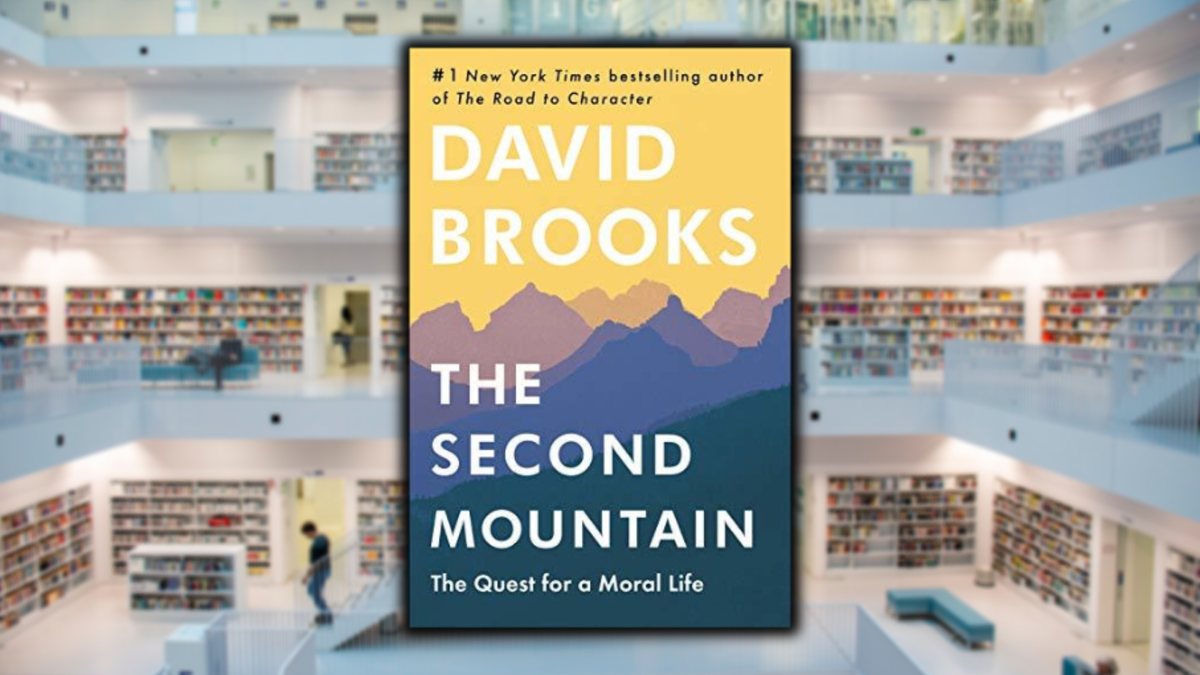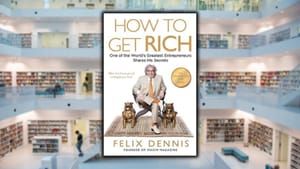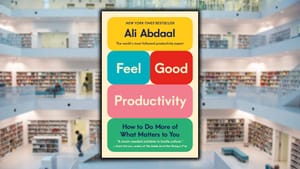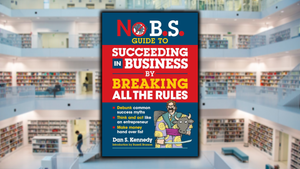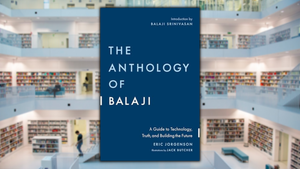
This Book is For:
*People who have been told throughout their entire lives that happiness was located just after the next success, achievement, or other fake milestone, only to travel to the end of that road and find out that it was actually a dead end.
*Everyone who suspects that there's more to life than getting and spending, comparing and competing, and that there's a better, more human way of existing and relating that's available to all of us.
*Anyone feels anxious, stressed out, hopeless, or lost, and who wants to find out how they can move past these feelings and become a human being again.
Summary:
“The lesson is that the things we had thought were most important - achievement, affirmation, intelligence - are actually less important, and the things we had undervalued - heart and soul - are actually most important."
-David Brooks, The Second Mountain
What if you spent your whole life climbing the ladder to success, only to find that it was leaning against the wrong building?
In this spectacular and damn-near urgent book, political and cultural commentator David Brooks uses a different vertical metaphor - two mountains and a valley - to explore the devastating effects of our culture's unrestrained individualism, the dark night of the soul that's waiting for us when we discover that we've been sold a bill of goods, and what a full life of what he calls "moral joy" might look like.
The Second Mountain borders on urgent because right now we face an epidemic of hopelessness, addiction, and despair. The numbers bear this out.
For example:
*Chronic loneliness eats away at 35 percent of Americans over the age of 45.
*From 2012 to 2015, the percentage of young Americans with severe depression rose from 5.9 to 8.2 percent.
*From 2006 to 2016, the suicide rate rose by 70 percent among Americans aged 10 to 17.
Millions and millions of anxiety pill prescriptions are unable to stop any of this. If we ever really believed that we don't need each other, that belief has been absolutely shattered by David Brooks's argument in The Second Mountain.
As we'll discuss in the Key Ideas below, the "first mountain" represents the relentless pursuit of success and achievement that's possessed the mind of the Western world for so long.
When you climb the first mountain, what you're really cultivating are the "résumé virtues" - the skills and talents you bring to the marketplace. On the second mountain, it's all about the "eulogy virtues" - what they talk about at your funeral.
The Second Mountain is an intensely personal book, and one that will stop you cold in dozens of places as you pause to ponder the profundity of what others have discovered about the true aims of life. It can't just be about the self; that's what has led to the current rash of suicides and the epidemic of despair.
A real human life - a committed, relational life - is lived on the second mountain, with others. For others. Brooks explains how we got this all mixed up, and he also offers numerous practical and lofty ideas about how we can restore balance to our inner lives.
Nowhere does he say that the first mountain isn't an important part of life. It absolutely is. But it's not the whole of life, even though it seems as though the entire culture believes that it is.
There's more to life than anything that's dreamt of on the first mountain, and through personal stories, cold hard facts, and even an entire "Relationalist Manifesto," Brooks gives us a clear picture of what that might look like.
He's also fond of quoting George Eliot, author of Middlemarch, although my favorite quote of hers doesn't appear in The Second Mountain. It, however, nicely summarizes Brooks's central idea, and it goes something like this:
"What are we here for if not to make life a little less difficult for one another?"
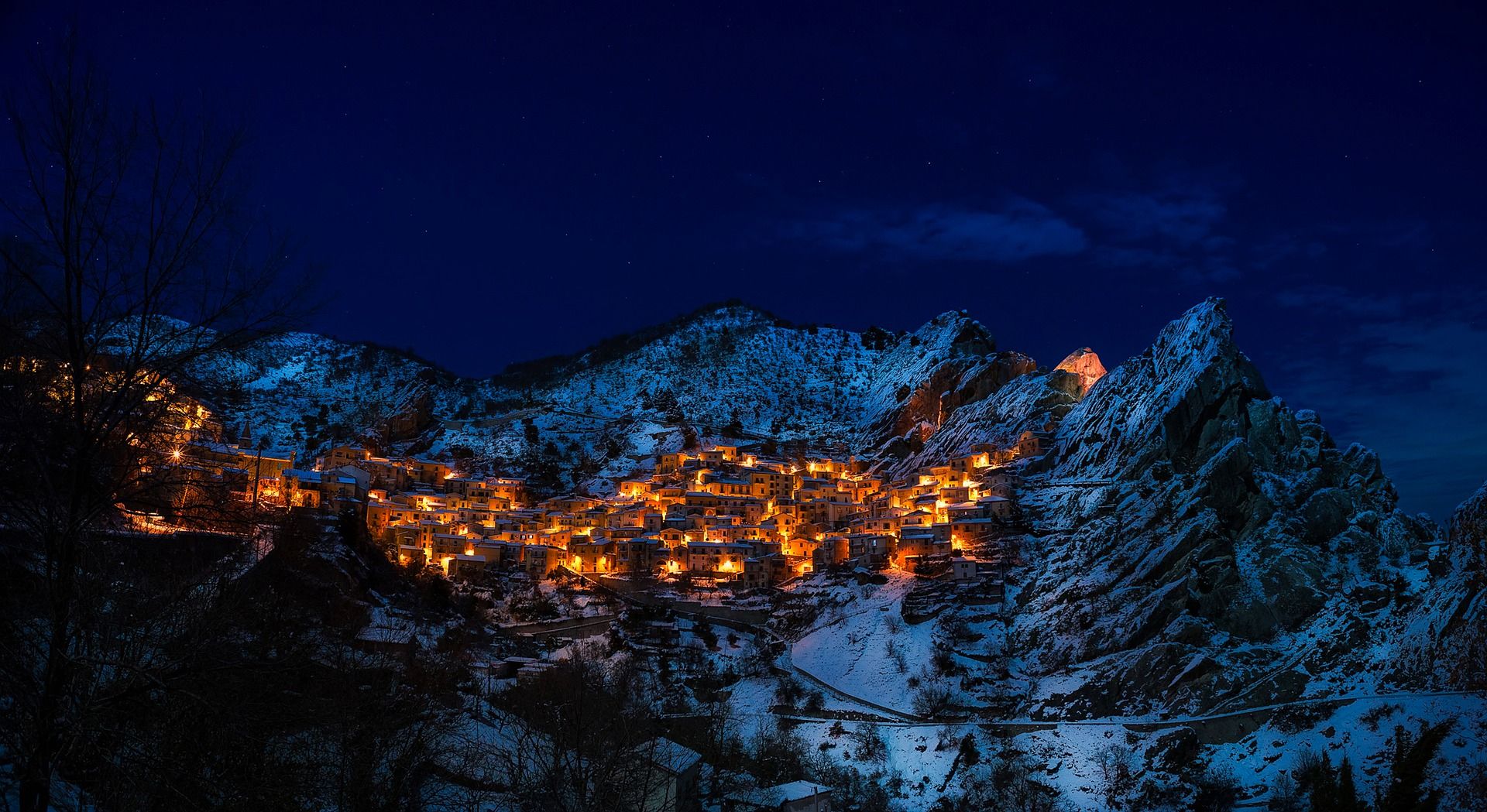
Key Ideas:
#1: The Two Mountains
“Life is not a solitary journey. It is building a home together. It is a process of being formed by attachments and then forming attachments in turn. It is a great chain of generations passing down gifts to one another."
No one is self-made. Not anywhere, not ever. We are all the unique creation of our environments, our support system, our community, and our influences, combined with our own distinctive personalities and individual contributions. We contain multitudes.
But today, we're living in an era of rampant individualism and within a culture that's basically conspiring to blind us to the fact of our fundamental interconnectedness.
This, as David Brooks writes, is what life on "the first mountain" looks like. The governing metaphor in his book is that of two mountains, the first representing the Darwinian struggle to climb the mountain of success and to be "better than," or "more than" the next person. The first mountain is also a trap.
The first mountain is like a ladder that leaning on the wrong building, because once you do get to the top, if you ever do, you realize that it wasn't even the mountain most worth climbing in the first place. This is also where it gets dangerous.
When you're on the first mountain, you can't even reach the second mountain from where you are; you have to descend into the valley first, which we'll explore in the next Key Idea. That's a whole other area of psychological pain and suffering.
The second mountain, however, is more substantial. The wider culture places the second mountain further away from our immediate concerns, but once you get there - to a life of service, deep commitment, and moral joy - you realize even more fully that the first mountain could never support the weight of your soul.
Instead of the radical independence that characterizes life on the first mountain, the second mountain offers a life of interdependence; a whole community offering gifts to one another. Gifts of their time, attention, care, resources, and unconditional love.
The flimsy, shadowy happiness that the first mountain is eclipsed mightily by the joy that's found on the second mountain, as David Brooks explains here:
“Happiness is the proper goal for people on their first mountain. And happiness is great. But we only get one life, so we might as well use it hunting for big game: to enjoy happiness, but to surpass happiness toward joy.
Happiness tends to be individual; we measure it by asking, 'Are you happy?' Joy tends to be self-transcending. Happiness is something you pursue; joy is something that rises up unexpectedly and sweeps over you. Happiness comes from accomplishments; joy comes from offering gifts. Happiness fades; we get used to the things that used to make us happy. Joy doesn't fade.
To live with joy is to live with wonder, gratitude, and hope. People who are on the second mountain have been transformed. They are deeply committed. The outpouring of love has become a steady force."
#2: The Valley
“When a whole society is built around self-preoccupation, its members become separated from one another, divided and alienated. And that is what has happened to us. We are down in the valley.
The rot we see in our politics is caused by a rot in our moral and cultural foundations - in the way we relate to one another, in the way we see ourselves as separable from one another, in the individualistic values that have become the water in which we swim."
My sincere hope is that you never have to spend too much time in the valley, because it's definitely not the kind of place you want to be. The "valley" is Brooks's term for the anguished season of searching and self-questioning that comes when you find out that the first mountain was resting on air.
The entire edifice of success and achievement and "I don't need anyone's help to be free" that you've organized your whole life around comes crumbling down, and now you find yourself in the valley, wondering what to do and where to go next.
Now, there are two ways we fall from the first mountain and wind up in the valley. The first is when we reach the success that we've been striving for this whole time and we realize that it does nothing for us. We've reached this point that everyone and their brother is trying to get to - we finally made it! - and then we realize that it could never make us happy. It leaves us empty.
The other way occurs when we're still climbing, and we experience some radical shock or life event that boots us right off the first mountain and shows us clearly and immediately that we're headed for disaster.
In many ways, this is the best-case scenario, because we realize early on that the "prizes" that society dangles in front of us will never really fill us up and we need to embark on a search for what does actually matter.
Either way, most people do actually have to experience being in the valley at least for a little while, because we're not often motivated to make a change unless something hurts.
Usually, life on the mountain isn't "that bad," and so we're never really forced to take stock of our direction. It's like the story of the guy who was sitting on a nail. When somebody asked him why he was sitting on it, he replied, "Because it doesn't hurt enough to move."
As Brooks explains, there is a long human history of entering and emerging from the valley:
“The valley is where we shed the old self so the new self can emerge. There are no shortcuts. There's just the same eternal three-step process that the poets have described from time eternal: from suffering to wisdom to service. Dying to the old self, cleansing in the emptiness, resurrecting in the new. From the agony of the valley, to the purgation in the desert, to the insight on the mountaintop."
It's exactly like Saint Augustine's "dark night of the soul" that he had to go through in order to find the meaning of his life. It's the same for everybody. These dark nights expose our perilous position on the first mountain and at dawn, they show us the path to the base of the second mountain:
“Seasons of pain expose the falseness and vanity of most of our ambitions and illuminate the larger reality of living and dying, caring and being cared for. Pain helps us see the true size of our egotistical desires.
Before they seemed gigantic and dominated the whole screen. After seasons of suffering, we see that the desires of the ego are very small desires, and certainly not the ones we should organize our lives around.
Climbing out of the valley is not like recovering from a disease. Many people don't come out healed; they come out different."
#3: Happiness Versus Joy
“Happiness is what we aim for on the first mountain. Joy is a by-product of living on the second mountain. We can help create happiness, but we are seized by joy. We are pleased by happiness, but we are transformed by joy.
When we experience joy we often feel we have glimpsed into a deeper and truer layer of reality. A narcissist can be happy, but a narcissist can never be joyful, because the surrender of self is the precise thing a narcissist can't do. A narcissist can't even conceive of joy. That's one of the problems with being stuck on the first mountain: You can't even see what the second mountain offers.
My core point is that happiness is good, but joy is better. Just as the second mountain is a fuller and richer phase of life after the first mountain, joy is a fuller and richer state beyond happiness.
Moreover, while happiness tends to be fickle and fleeting, joy can be fundamental and enduring. The more you are living a committed life well, the more joy will be your steady state, the frame of mind you carry around with you and shine on others. You will become a joyful person.
So throughout this book as in life, joy is our north star, our navigating point. If we steer toward joy, we will wind up at the right spot."
Steer toward joy, rather than toward mere happiness. It makes a huge difference. Joy includes others, whereas happiness can be just as lonely as sadness. Joy is also easier to share than happiness, because happiness tends to be more personal, more about the self.
In one of my favorite passages from The Second Mountain, David Brooks discusses what goes into developing good character, but he also points the way to something even better:
“I now think good character is a by-product of giving yourself away. You love things that are worthy of love. You surrender to a community or cause, make promises to other people, build a thick jungle of loving attachments, lose yourself in the daily act of serving others as they lose themselves in the daily acts of serving you.
Character is a good thing to have, and there's a lot to be learned on the road to character. But there's a better thing to have - moral joy. And that serenity arrives as you come closer to embodying perfect love."
#4: The Two Types of Freedom
“It’s only then that they realize the truth that somebody nobody told them: Freedom sucks.
Political freedom is great. But personal, social, and emotional freedom - when it becomes an ultimate end - absolutely sucks. It leads to a random, busy life with no discernable direction, no firm foundation, and in which, as Marx put it, all that's solid melts to air.
It turns out that freedom isn't an ocean you want to spend your life in. Freedom is a river you want to get across so you can plant yourself on the other side - and fully commit to something."
There are at least two types of freedom: freedom from, and freedom to. They are completely different concepts, and an ideal life will include both in varying degrees.
In the best sense of freedom from, you will experience freedom from fear, from scarcity, from hunger, from unchecked desires, from conflict. Those are all excellent things to have, and I wish those on everybody.
But the culture often pushes the alleged desirability of freedom from attachments and commitments and responsibilities, and that's just so wrong-headed that I would be ashamed even to put such ideas in writing.
When personal, social, and emotional freedom is virtually unlimited, we can never be grounded, we can never be embedded within a community, and that's where many of our biggest problems actually come from - this lack of rootedness and connectivity.
Committing to something - or someone - necessarily means that you are going to become less free, at least in that area. But, paradoxically, it opens up other freedoms that you would never have had access to had you not decided to limit your freedom initially. Let me explain.
When you commit to an exercise program, for example, you're restricting your "freedom" to sit around on the couch all day eating chips and dip, but you're giving yourself the freedom to experience more energy, vitality, a greater sense of self-worth and efficacy, and so much more.
Likewise, when you commit to a marriage, you're restricting your "freedom" to center your life around yourself and your own needs and desires, but you're giving yourself the freedom to experience the highest heights of interpersonal relatedness; the opportunity to know another human being deeply and intimately; and for many people, this freedom to is worth more than holding on the freedom from attachment, obligation, and responsibility.
#5: The Committed Life
“People on the second mountain have made strong commitments to one or all of these four things:
*A vocation
*A spouse and family
*A philosophy or faith
*A community
A commitment is making a promise to something without expecting a reward. A commitment is falling in love with something and then building a structure of behavior around it for those moments when love falters."
Life on the second mountain is a committed life. It's an affirmation of the importance you ascribe to these four areas and a life-long commitment to deepening your involvement with them, but it's also about structures of behaviors for when "love falters," as Brooks says.
Just like with any workout program - or, really, any endeavor whatsoever - you're not going to feel fired up and motivated all the time. There will be times when you just don't wanna do it.
What happens then? Will you give up on your commitment? Break your promise?
That's when structures or behaviors come in - like marriage vows, promises, accountability groups, the expectations of people you look up to, etc. When you have those things in place, breaking your promise and just moving on is no longer an option. You're committed to seeing this through.
It's not just "Well, I'll try this for a bit and see how it goes." No, it's a commitment, a promise - a vow - and that changes everything.
A much richer life than anything you'll find on the first mountain is yours once you make an unbreakable commitment to one or all of these four things: a vocation, a family, a philosophy, and a community.
Striking a perfect balance between them all may not be realistic (and it probably isn't), but if you embed yourself within a community, dedicate yourself to mastering work that you find meaningful, pledge your undying love to your family, and engage in the ceaseless questioning of your beliefs about life, then you're solidly rooted on the second mountain. Life's good.
#6: The Power of a Permanent "No"
“At the beginning, it involves a choice- choosing this or that vocation. But 99.9 percent of the time it means choosing what one has already chosen. Just as all writing is really rewriting, all commitment is really recommitment. It's saying yes to the thing you've already said yes to."
Most of commitment is actually re-commitment; it's saying yes to the thing you've already said yes to. This is incredibly important to understand: it's not just that we make one decision one time and hold onto it forever; we keep affirming that decision over and over again for our entire life. That's also the hardest part.
It's easy to "commit" to something once; it's much harder to keep saying yes to that thing, but that's actually the majority of what a commitment really is. Again, it's about implementing structures of behavior that allow us to restrict our freedom now in service of even greater freedom down the line.
Going further into this idea, it's also true that making a lifelong commitment is about shutting out every other option in favor of what we want more. It's saying no to something less than what we've committed to and making that "no" permanent. And as David Brooks explains:
“If you aren’t saying a permanent no to anything, giving anything up, then you probably aren't diving into anything fully. A life of commitment means saying a thousand noes for the sake of a few precious yeses."
#7: The Moral Case for Refusing to Settle
“Some people say, Never settle: You had better feel insanely lucky to have this person. Others say, Be more realistic: You're never going to find the perfect person, and it's better to be in a decent relationship than alone.
Jane Austen thought it was 'wicked' to settle, and I'm with her. If you marry without total admiration and rapture, you will not have enough passion to fuse you together in the early days, and you will split apart when times get hard.
Moreover, settling is immoral because there is another person involved. The other person is not going to want to be the fourth best option in your life. Are you going into the relationship telling the person that you're 'settling' in being with them?
If you're honest and tell him that, you're introducing a fatal inequality into your relationship right away.
If you don't tell him that, you are lying to the person you are supposedly closest to in the whole world. Settling seems realistic, but only a love built on rapturous devotion is pragmatic in the end."
#8: The True Foundation of Society
“When you actually look around the world - parents looking after their kids, neighbors forming associations, colleagues helping one another, people meeting and encountering each other in coffee shops - you see that loving care is not on the fringe of society. It's the foundation of society."
You'll never become informed by watching the news. There's just too much going on in the world, and what gets shown to you isn't placed there because it's going to give you the most accurate picture of reality; it's placed there because it will draw the most clicks, the most eyeballs, the most advertising dollars.
Blood running through the streets is attention-getting in a way that steady, consistent quality-of-life increases for the majority of Earth's population just don't. In fact, here's something from my breakdown of Enlightenment Now, by Steven Pinker:
"If news outlets truly reported the changing state of the world, they could have run the headline 'Number of People in Extreme Poverty Fell by 137,000 Since Yesterday' every day for the last 25 years. We live in a world not just with a smaller proportion of extremely poor people but with a smaller number of them, and with 6.6 billion people who are not extremely poor."
There's another book, Progress, by Johan Norberg, that's basically a catalog of all the spectacular improvements in living standards and well-being that humanity has achieved for itself, particularly after the year 1800.
Norberg runs down the list - food, sanitation, poverty, violence, equality, etc - and explains how 2.6 billion people have received access to an improved water source since 1990, how the poorest countries in the world in the 1950s were richer than the richest countries in the world were in 1800, and so much more.
Tying this into what David Brooks is saying in the first quote: if all we see is the conflict, chaos, and destruction, we're missing most of what's going on. Our view of the world - our look at its very foundations - is hopelessly obscured.
The reality is that most people get along just fine most of the time. Conditions everywhere are improving at an astonishing rate, and loving care between humans is the norm, not the exception.
The real strength of the world is a quiet strength that will never make it onto the six o'clock news. Same with our culture of individualism and cutthroat competition - it's not most people's reality or even dreams. It just seems like it is because that's what gets shared on social media and on the news. Real life, a deeply human, committed life, takes place off center stage, but that's where the real show's at.
#9: The Force that Moves the Sun and the Other Stars
“What you end up with is this grand sense of connection, the sense of metaphysical singleness. There is no such thing as an egoistic self that is separated from everyone and everything else."
In the 14th century, Dante Alighieri completed his masterwork, The Divine Comedy. The famous last lines tell us that it is Love that moves the sun and the other stars.
That was the thunderbolt realization that rained down on Dante as he made his way through the circles of Hell (the valley!), past Purgatory, and up into Paradise, which could also be called the second mountain.
You see, all the most powerful forces in the universe - the ones that really kick ass, as David Mitchell writes - are completely invisible. They're there, moving the sun, the Earth, the other stars, and us, but we can't see them. They're silently working in the background. Forces like love, power, gravity, compound interest, and time, to name a few.
People on top of the first mountain seem powerful, but it's actually unconditional love that is the most powerful force in the entire universe, and not anything that's on offer on the first mountain.
The first mountain is built on shifting sand; the second mountain is here forever and ever. The first mountain is surely responsible for producing many of the things that keep us alive, but the second mountain is what we live for.
“The universe is alive and connected, these moments tell us. There are dimensions of existence you never could have imagined before. Quantum particles inexplicably flip together, even though they are separated by vast differences of time and space.
Somehow the world is alive and communicating with itself. There is some interconnecting animating force, and we are awash in that force, which we with our paltry vocabulary call love."

Book Notes:
“A life of deep commitments is possible. When we fall short, it will be because of our own limitations, not because we had an inadequate ideal.”
“When it comes to what we writers do, I like to apply an observation by D.T. Niles: We are like beggars who try to show other beggars where we found bread."
“When I meet people leading lives of deep commitment, this fact hits me: Joy is real.”
"There is joy in self-forgetfulness, so I try to make the light in others' eyes my sun, the music in others' ears my symphony, the smile on others' lips my happiness."
-Helen Keller
“Then, from the most structured and supervised childhood in human history, you get spit out after graduation into the least structured young adulthood in human history.
Yesterday parents, teachers, coaches, and counselors were all marking your progress and cheering your precious self. Today the approval bath stops. The world doesn't know your name or care who you are. The person on the other side of the desk at every job interview has that distant Kanye attitude - there's a million of you; there's only one of me."
“In the age of the smartphone, the friction costs involved in making or breaking any transaction or relationship approach zero. The internet is commanding you to click on and sample one thing after another. Living online often means living in a state of diversion.
When you're living in diversion, you're not actually deeply interested in things; you're just bored at a more frenetic pace. Online life is saturated with decommitment devices. If you can't focus your attention for thirty seconds, how on earth are you going to commit for life?
Such is life in the dizziness of freedom. Nobody quite knows where they stand with one another. Everybody is pretty sure that other people are doing life better. Comparison is the robber of joy."
“What does it profit a man to sell his own soul if others are selling theirs and getting more for it?”
“Wealth and fame and accomplishment do not spare anybody from the valley.”
“Tribalism is community for lonely narcissists.”
“As the Sufi saying puts it, ‘I was a hidden treasure.’”
“Suffering that is not transformed is transmitted.”
“When I look back on my past and think how much time I wasted on nothing, how much time has been lost in utilities, errors, laziness, incapacity to live; how little I appreciated it, how many times I sinned against my heart and soul - then my heart bleeds."
-Fyodor Dostoevsky
"Life is a gift. Life is happiness, every minute can be an eternity of happiness."
-Fyodor Dostoevsky
“The main activity of life is giving. Human beings at their best are givers of gifts.”
“Moral formation is not individual; it is relational. Character is not something you build sitting in a room thinking about the difference between right and wrong and about your own willpower. Character emerges from our commitments.
If you want to inculcate character in someone else, teach them how to form commitments - temporary ones in childhood, provisional ones in youth, permanent ones in adulthood. Commitments are the school for moral formation. When your life is defined by fervent commitments, you are on the second mountain."
“I’ve learned never to underestimate the power of a dinner table.”
"If you wanted to generalize a bit, you could say there are six layers of desire:
Material pleasure: Having nice food, a nice car, a nice house.
Ego pleasure: Becoming well-known or rich and successful. Winning victories and recognition.
Intellectual pleasure: Learning about things. Understanding the world around us.
Generativity: The pleasure we get in giving back to others and serving our communities.
Fulfilled love: Receiving and giving love. The rapturous union of souls.
Transcendence: The feeling we get when living in accordance with some ideal."
“If the Nazis were trying to extinguish love from the world, she would stand as a force for it. As the world grew heartless, she felt called to enlarge her own heart."
“It did not really matter what we expected from life, but rather what life expected from us. We needed to stop asking about the meaning of life, and instead to think of ourselves as those who were being questioned by life - daily and hourly. Our answer must consist not in talk and meditation, but in right action and in right conduct. Life ultimately means taking responsibility to find the right answer to its problems and to fulfill the tasks which life constantly sets for each individual."
-Viktor Frankl
“Vocations invariably have testing periods - periods when the costs outweigh the benefits - which a person must go through to reach another level of intensity. At these moments, if you were driven by a career mentality you would quit. You're putting more into this thing than you are getting out. But a person who has found a vocation doesn't feel she has a choice. It would be a violation of her own nature. So she pushes through when it doesn't seem to make sense."
“When an issue is less central to one's identity, it's possible to feel, for example, 'I really should do more to help those in need, but it's just too hard,' or 'I just can't find the time.' But when the issue lies at the very heart of who one is, it becomes unthinkable to turn away."
-Anne Colby and William Damon in Some Do Care
“What we have loved, others will love, and we will teach them how.”
-William Wordsworth
“A lot of what mentors do is to teach us what excellence looks like, day by day.”
“Moral education is impossible without the habitual vision of greatness."
-Alfred North Whitehead
“The most indispensable viaticum for the journey of life is a store of adequate ideals, and these are acquired in a very simple way, by living with the best things in the world - the best pictures, the best buildings, the best social or political orders, the best human beings. The way to acquire a good taste in anything, from pictures to architecture, from literature to character, from wine to cigars, is always the same - be familiar with the best specimens of each."
-Sir Richard Livingstone
“It’s really hard to know your current self, but it's pretty well impossible to know what your future transformed self will be like. You can't rationally think through this problem, because you have no data about the desires of the transformed you."
“The paradox of life is that people seem to deliberate more carefully over the little choices than the big ones. Before buying a car, they read all the ratings, check out resale values on the internet, and so on. But when it comes to choosing a vocation, they just sort of slide rather than decide. They slide incrementally into a career because someone gave them a job. They marry the person whom they happen to be living with. For many, the big choices in life often aren't really choices; they are quicksand. You just sink into the place you happen to be standing."
“The best advice I've heard for people in search of a vocation is to say yes to everything. Say yes to every opportunity that comes along, because you never know what will lead to what. Have a bias toward action. Think of yourself as a fish that is hoping to get caught. Go out there among the fishhooks."
“If you were born lucky, you should solve big problems.”
“Find that place in the self that is driven to connect with others, that spot where, as the novelist Frederick Buechner famously put it, your deep gladness meets the world's deep hunger."
“My own particular cover is that of a university professor. It’s a way of looking responsible while attending to much more important things.”
“Self-discipline is a form of freedom. Freedom from laziness and lethargy, freedom from expectations and the demands of others, freedom from weakness and fear - and doubt."
-H.A. Dorfman
“At the grand level, marriage means offering love, respect, and safety, but day to day, there are never-ending small gestures of tact and consideration, in which you show you understood her moods, you cherish his presence, that this other person is the center of your world."
“Marriage comes as a revolution. To have lived as a one and then suddenly become a two - that is an invasion. And yet there is a prize. People in long, happy marriages have won the lottery of life. They are the happy ones, the blessed ones. And that is the dream of marital union that lures us on."
“What greater thing is there for two human souls than to feel that they are joined for life - to strengthen each other in all labor, to rest on each other in all sorrow, to minister to each other in all pain, to be one with each other in silent unspeakable memories at the moment of last parting?"
-George Eliot
“Marriage is the sort of thing where it's safer to go all in, and it's dangerous to go in half-hearted. At the far end, when done well, you see people enjoying the deepest steady joy you can find on this earth."
“Politeness is at the core of morality.”
“My friends tell me I have an intimacy problem, but they don't really know me."
-Garry Shandling
“Love relies a bit on generous idealizations.”
“Real forgiveness is rigorous. It balances accountability with mercy and compassion.”
“He who is devoid of the power to forgive is devoid of the power to love."
-Martin Luther King Jr.
“The lover is the clearest expression of man's natural imperfection and his quest for perfection."
-Allan Bloom
“When love strikes, it becomes clear that under the influence of our own egos we have been sleepwalking through life. It exposes the fact that the chasms within us cannot be filled by the food the ego hungers for."
“I sat at that table marveling at the fact that of all the people around it, only she was special to me. Why should that be? Everybody else seemed bright and kind, too. They all had heads and torsos, arms and legs. And yet I was connected by magical life-altering chords to just this one, magical chords that no one else in the room could see but which shaped the whole room and made it revolve around her."
“Better this than parting. Better to be miserable with her than happy without her. Let our hearts break provided they break together."
-C.S. Lewis
“The obvious reason to step back and appraise, even at this late juncture, is that you're not the first person on earth to feel this way. Presumably, most of the couples that went on to get married walked through most of the same stages of intimacy as you did; they felt the same rush of love, the same sense of fusion and destiny - and then they married and then they got divorced. Love and passion are not enough. You're setting a higher bar."
“Since this is the most important decision of your life, you would think society would have prepared you for this moment. You would think that the schools would have provided you with course after course on the marriage decision, on the psychology of marriage, the neuroscience of marriage, the literature of marriage. But no, society is a massive conspiracy to distract you from the important choices of life in order to help you fixate on the unimportant ones."
“Everybody spends too much time appraising the other person when making marriage decisions, but the person who can really screw things up is you."
“The quality of the conversation is the quality of the marriage.”
“When J.F. Roxburgh, the headmaster of the Stowe School in Vermont, was asked in the 1920s about the purpose of his institution, he said it was to turn out young men who were 'acceptable at a dance, invaluable in a shipwreck.' It did that by exposing students to excellence."
“Hundreds of people can talk for one who can think, but thousands can think for one who can see."
-John Ruskin
“A lot of our thinking is trying to have the opinion that will help you win social approval and admittance into the right social circles. The hard part of intellectual life is separating what is true from what will get you liked."
“To read Whitman as he exults in joy, to be with Antigone as she struggles to bury her brother, to travel with Galileo as he follows his discoveries wherever they may take him, to be with the mathematician Pascal as he feels the direct presence of God, or to travel with Sylvia Plath into the depths of madness is not necessarily to learn a new fact, but it is to have a new experience."
“The educated life is a journey toward higher and higher love.”
“I have few friends left over from high school or college, but I have about forty or fifty lifelong friends from camp, and for decades they did not even realize that Brooksie had a first name."
“To be religious, as I understand it, is to perceive reality through a sacred lens, to feel that there are spiritual realities in physical, imminent things."
“It was relatively easy to perceive God's presence up at American Lake. It was going to be a lot harder to actually practice a faith. I was always proud, striving, taking control. They don't make the eyes of needles big enough."
“A commitment to faith is a commitment to stick with it through all the various seasons of faith and even those moments when faith is absent. To commit to faith is to commit to the long series of ups and downs, to intuitions, learning and forgetting, knowing one sort of God when you're twenty-five and a very different God at thirty-five, fifty-five, and seventy-five. It means riding out when life reveals itself in new ways and faith has to be reformulated once again. To commit to faith is to commit to change. It includes moments of despair, or it is not faith."
“The sheer shock of it. Religion is a never-ending surprise. You never quite get comfortable with the idea that creation is alive, and that there is such a thing as universal love."
“Today, faith doesn’t feel like faith in an old man with a white beard who is separating waters. It feels like faith in wider possibilities than I had imagined and living one's life in the shadow of those possibilities. Reality shimmers."
“Throughout this book, I've been talking about commitments as a series of promises we make to the world. But consider the possibility that a creature of infinite love has made a promise to us. Consider the possibility that we are the ones committed to, the objects of an infinite commitment, and that the commitment is to redeem us and bring us home."
“A community is healthy when relationships are felt deeply, when there are histories of trust, a shared sense of mutual belonging, norms of mutual commitment, habits of mutual assistance, and real affection from one heart and soul to another."
“So, how is community restored? Basically, it's restored by people who are living on the second mountain, people whose ultimate loyalty is to others and not themselves."
“Most sustainable improvements in community occur when citizens discover their own power to act. Whatever the symptom - drugs, deteriorating houses, poor economy, displacement, violence - it is when citizens stop waiting for professionals or elected leadership to do something, and decide they can reclaim what they have delegated to others, that things really happen."
-Peter Block
“The growing good of the world is partly dependent on unhistoric acts; and that things are not so ill with you and me as they might have been, is half owing to the number who lived faithfully a hidden life, and rest in unvisited tombs."
-George Eliot
“Communities are defined by the treatment of the least among them."
“This is possibility thinking. If you want to shift the culture, you've got to have a conversation you haven't had before, one that is about long-term possibilities. What can this place be like in 2049?"
“They want all of the players in the system to be cooperating, not competing. They need to have purity of communication above all and transparency about the data. They don't want anybody hiding data because they're afraid of what punishments may come. They use data as a flashlight, not a hammer."
“The secret of life is to have a task, something you devote your entire life to, something you bring everything to, every minute of every day for the rest of your life. And the most important thing is, it must be something you cannot possibly do."
-Henry Moore
“A contract gets you benefits, but a commitment transforms who you are."
“The chief illusion of modern political activity is the belief that you can build a system so perfect that the people in it do not have to be good."
-T.S. Eliot
“The ultimate faith of relationalism is that we are all united at the deepest levels. At the surface, we have our glorious diversity. But at the substrate, there is a commonality that no amount of hostility can ever fully extinguish, that no amount of division can ever fully sunder."
“If you love a person and keep loving a person, they may lash out at first, but eventually they will break under the power of your care."
“When commitments are strong, when communication is pure, when the wounds of life have been absorbed and the wrongs forgiven, people bend toward each other, intertwine with one another, and some mystical combustion happens. Love emerges between people out of nothing, as a pure flame."
“This book is about relationship, and it grew out of relationships. Over the past five years, as life took its twists and turns, my old friendships grew deeper and dozens of new friendships came as gifts. One of the things I learned is that if you are in need and you go to your friends for help, they prize the opportunity to help you. It deepens your friendship and sets up a season, later on, when you can help them, after the tables are turned."
“The love that I feel for Anne and receive from her colors everything, warms everything. When people try to describe her, they usually settle on the same word: incandescent. This book has been, and the rest of my life will be, warmed and guided by Anne's light."
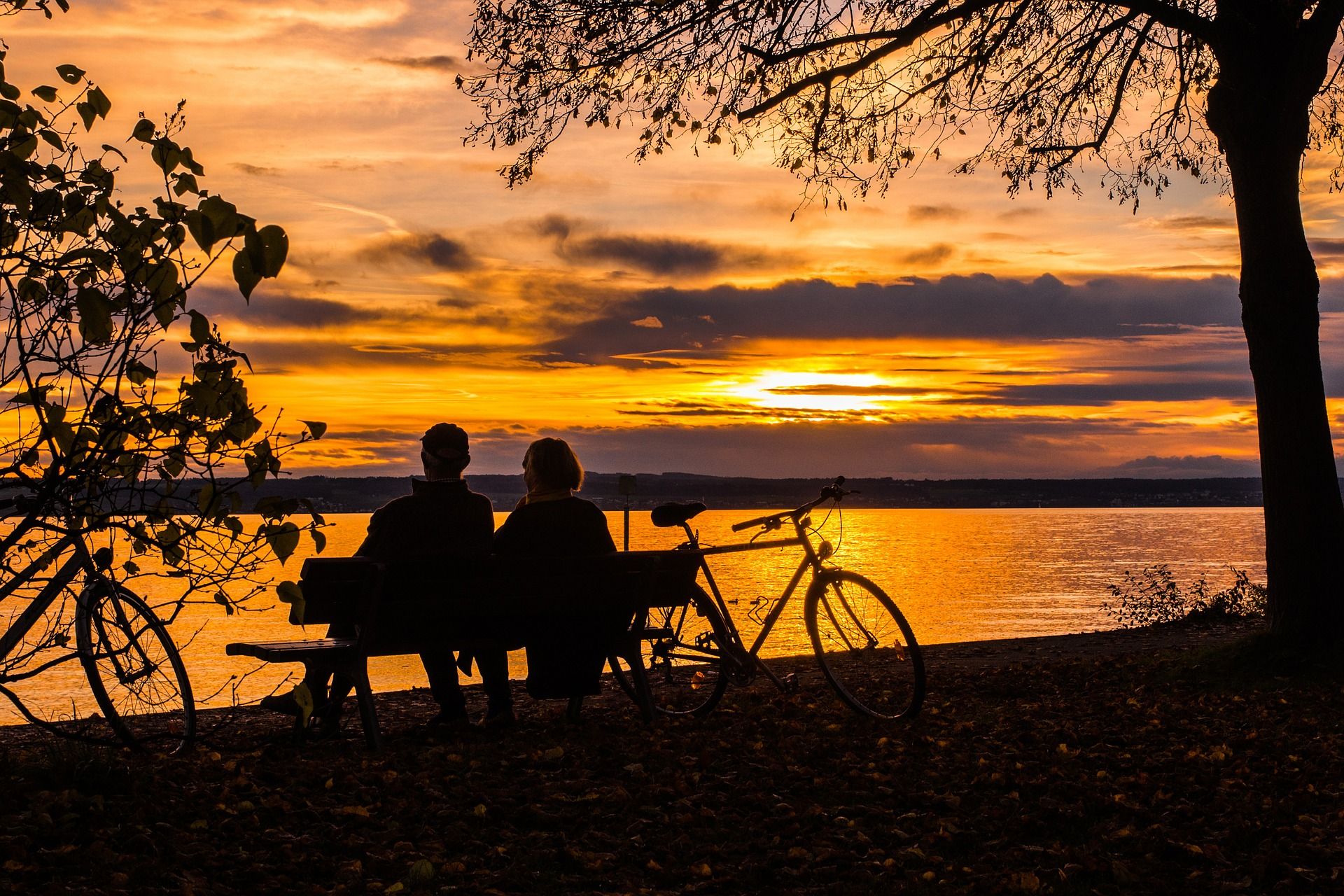
Important Insights from Related Books:
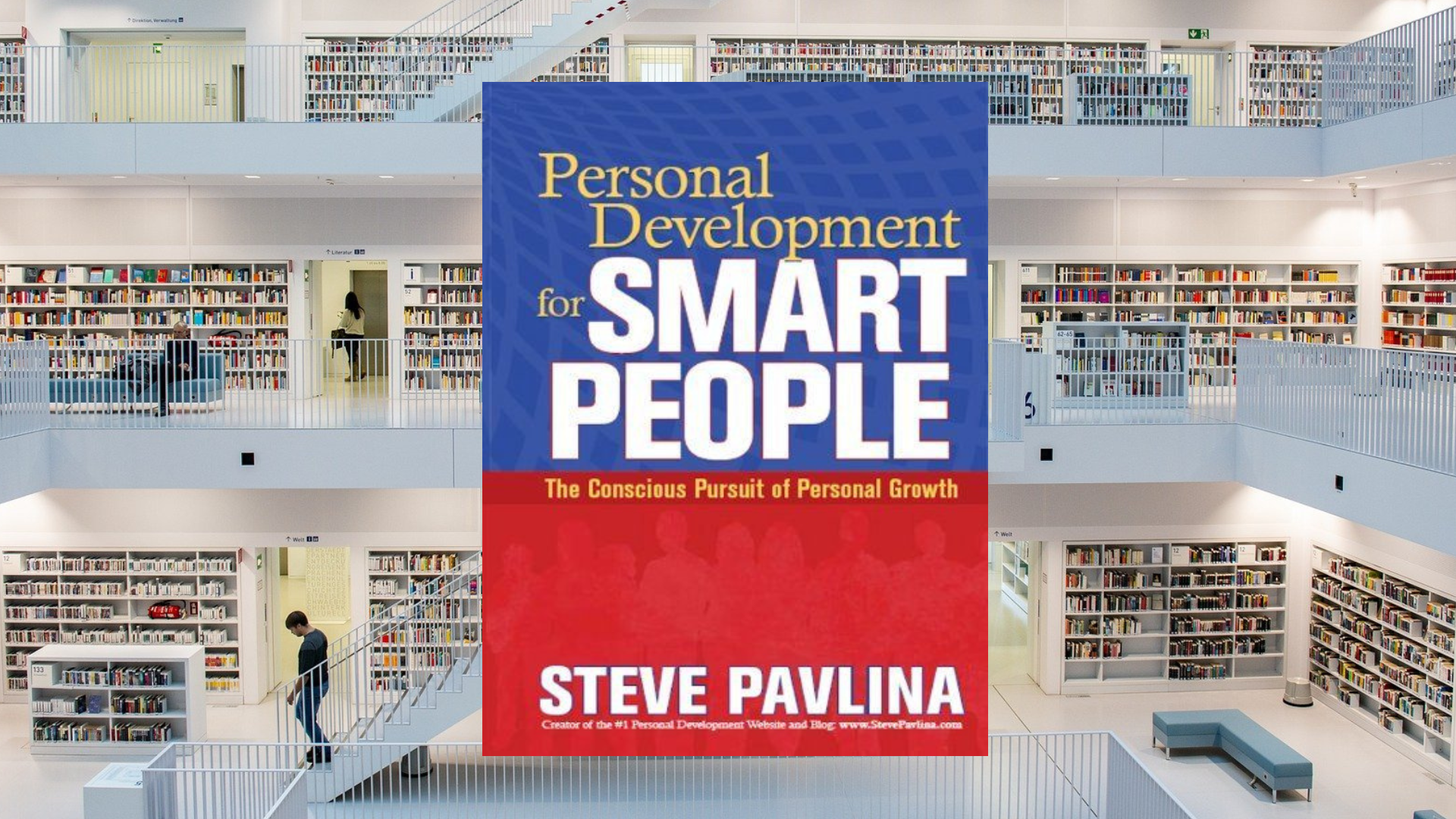
Personal Development for Smart People, by Steve Pavlina:
What does it mean to live intelligently, consciously, and forthrightly in the magnificent and infinitely complex world of which we are a part?
This question and all of its astounding implications was Steve Pavlina's overarching obsession, and after years and years of patient and sometimes restless searching, he now believes that the answer lies in the intersection between three core principles: Truth, Love, and Power.
In Personal Development for Smart People, Pavlina also builds on this foundation by explaining that there are also four secondary principles that follow from the first three. They are Oneness, Authority, Courage, and Intelligence, all of which represent some combination of the first three.
Oneness emerges from truth and love; Authority arises from truth and power; Courage comes from the combination of love and power. All of them together lead to the seventh core principle, which is Intelligence.
Virtually every problem can be thought of as a misalignment between your current mode of thinking and these universal laws of life and the universe.
Sample Quotes from the Book:
"Working on your personal growth may seem like a completely selfish undertaking, but in fact, it's the most selfless thing you can possibly do. As you improve your alignment with truth, love, and power, you increase your capacity to serve others. The more intelligent you become, the more good you can do.
If you haven't already discovered this, you'll eventually realize that when you improve yourself, you inspire others to do the same. Those people then inspire even more people, and your positive ripples of growth ultimately impact everyone. As you improve yourself, you improve all of us. As the cells improve, the whole body improves.
If you forget everything else from this book and remember only one piece of advice, it is simply this: The most intelligent thing you can possibly do with your life is to grow."
“There’s no rule cast in stone that requires you to assume everyone is separate from you. Something rather magical happens when you presuppose that everyone else is a part of you, just like one of your own dream characters.
The first thing you realize is that there are no strangers. There are no insignificant people in your reality. Since everyone is a part of you, everyone has something to teach you. Loving another person becomes the same thing as loving a part of yourself.
Since all parts of you are worthy of love, no human being is unworthy of love either. Loving other people and loving yourself are ultimately the exact same thing."
“You can’t avoid the responsibility for what happens on Earth, because you're a part of it. If you think the planet needs saving, you're responsible for saving it. If you think our leaders have gotten off track, you're responsible for getting us back on track. If you see problems in the world that aren't adequately being addressed, you're responsible for addressing those problems."
Read the Full Breakdown: Personal Development for Smart People, by Steve Pavlina

Finite and Infinite Games, by James P. Carse:
"There are at least two kinds of games: finite and infinite. A finite game is played for the purpose of winning, an infinite game for the purpose of continuing the play."
Thus begins one of the most endlessly fascinating philosophy books you're ever likely to come across - and one that can impact your life in ways that you can't unsee once you've seen them for the first time.
The themes explored in Finite and Infinite Games range from the difference between "education" and "training," and between "power" and "strength," to the nature of evil, our responsibilities towards others, and more. It touches on every part of life, but the final chapter consists of just one single sentence:
"There is but one infinite game."
By this, Carse means that all life, throughout the universe and all creation is bound up in the Infinite Game. And as Alan Watts said,
"You are something that the universe is doing, in the same way that a wave is something that the whole ocean is doing."
You are all of it, and every single "player," so to speak, is infinitely valuable to the functioning of the rest of the cosmos. There are no "extra" players in the game of Life, we're all just figuring this out as we go along, and our greatest adventures lay still further ahead.
Sample Quotes from the Book:
“No one can play a game alone. One cannot be human by oneself.”
“Strength is paradoxical. I am not strong because I can force others to do what I wish as a result of my play with them, but because I can allow them to do what they wish in the course of my play with them."
“Infinite players understand the inescapable likelihood of evil. They therefore do not attempt to eliminate evil in others, for to do so is the very impulse of evil itself, and therefore a contradiction.
They only attempt paradoxically to recognize in themselves the evil that takes the form of attempting to eliminate evil elsewhere. Evil is not the inclusion of finite games in an infinite game, but the restriction of all play to one or another finite game."
Read the Full Breakdown: Finite and Infinite Games, by James P. Carse
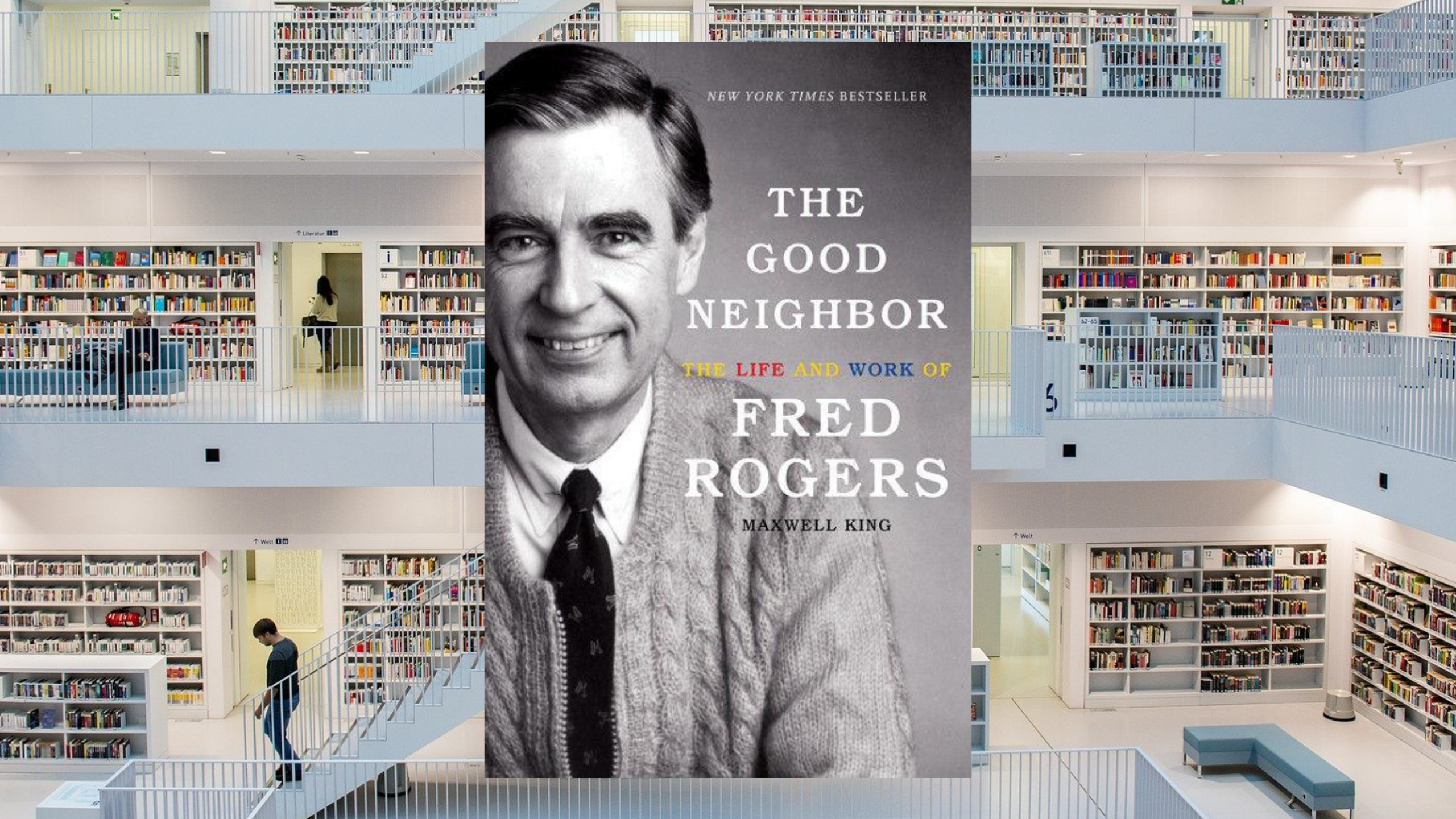
The Good Neighbor: The Life and Work of Fred Rogers, by Maxwell King:
Children can sense when they're being devalued; they can sense when an adult truly and honestly cares for them and when they don't, and they can always, always spot a fraud. Fred Rogers, or Mister Rogers to all of his television friends, was one of the most inspiring early childhood educators ever, and he brought his message of care, affection, and unconditional love to millions of children over the course of his 50-year career in broadcasting. He was the real deal, and children could feel it.
The Good Neighbor is a biography of Fred Rogers, one with astonishing personal stories on nearly every page. Like the time when Oprah lost control of her own television show during a taping because every child in the audience was so powerfully drawn to Mister Rogers; or when the TV station held an event where children could come and meet Mister Rogers, and thousands of kids showed up, lining up for miles and blocking the street like it was a college football game or something.
However, no matter how long the line was, he would always, always get down on one knee, look each kid in the eye, and make sure they knew that they mattered. He took kids and their questions seriously, and he saw the best in them, which made it possible for them to bring out the best in themselves.
Sample Quotes from the Book:
“For Fred Rogers, it was always this way when he was with children, in person, or on his hugely influential program. Every weekday, this soft-spoken man talked directly into the camera to address his television ‘neighbors’ in the audience as he changed from his street clothes into his iconic cardigan and sneakers.
Children responded so powerfully, so completely, to Rogers that everything else in their world seemed to fall away as he sang, ‘It’s a beautiful day in the neighborhood.’ Then his preschool-age fans knew that he was fully engaged as Mister Rogers, their adult friend who valued his viewers ‘just the way you are.’”
“And then when the money ran out, people in Boston and Pittsburgh and Chicago all came to the fore and said we’ve got to have more of this neighborhood expression of care. And this is what – this is what I give. I give an expression of care every day to each child, to help him realize that he is unique.
I end the program by saying, ‘You’ve made this day a special day, by just your being you. There’s no person in the whole world like you, and I like you, just the way you are.’ And I feel that if we in public television can only make it clear that feelings are mentionable and manageable, we will have done a great service for mental health.”
-Fred Rogers, testifying before the Senate on behalf of public television in 1969
“The first week of Mister Rogers’ Neighborhood saw Mister Rogers enjoying a home visit from Mrs. Saunders, an African American teacher, and a small interracial group of her students. It was a simple visit with a hard-hitting message: whites and blacks live, study, and play together in the Neighborhood.”
Read the Full Breakdown: The Good Neighbor: The Life and Work of Fred Rogers, by Maxwell King

Wanting, by Luke Burgis:
It's surprising how little people know about where their desires actually come from. It's not obvious why we want what we want, and it's the endlessly fascinating "universe of human desire" that is the subject of today's book.
Backed up by the hugely influential French intellectual René Girard, author Luke Burgis shows that humans rarely desire anything independently. Human desire is mimetic - we imitate what other people want.
But in the exact same way that gravity exerts an invisible force on our bodies, the psychological force of mimesis shapes human desire all the time, silently and invisibly, and hardly anyone is aware of it happening at all.
Wanting is about how we arrive at our desires, and about how we can transform our relationship with those desires in order to step into our full humanity, relate to each other more harmoniously, and intelligently select our desires in such a way that we enlarge ourselves, rather than diminish ourselves.
Sample Quotes from the Book:
“Each of us spends every moment of our life, from the moment we’re born to the moment we die, wanting something. We even want in our sleep. Yet few people ever take the time to understand how they come to want things in the first place. Wanting well, like thinking clearly, is not an ability we’re born with. It’s a freedom we have to earn.”
“Desire doesn’t spread like information; it spreads like energy. It passes from person to person like the energy between people at a concert or political rally. This energy can lead to a cycle of positive desire, in which healthy desires gain momentum and lead to other healthy desires, uniting people in positive ways; or it can become a cycle of negative desire, in which mimetic rivalries lead to conflict and discord.”
“There are always models of desire. If you don’t know yours, they are probably wreaking havoc in your life.”
Read the Full Breakdown: Wanting, by Luke Burgis
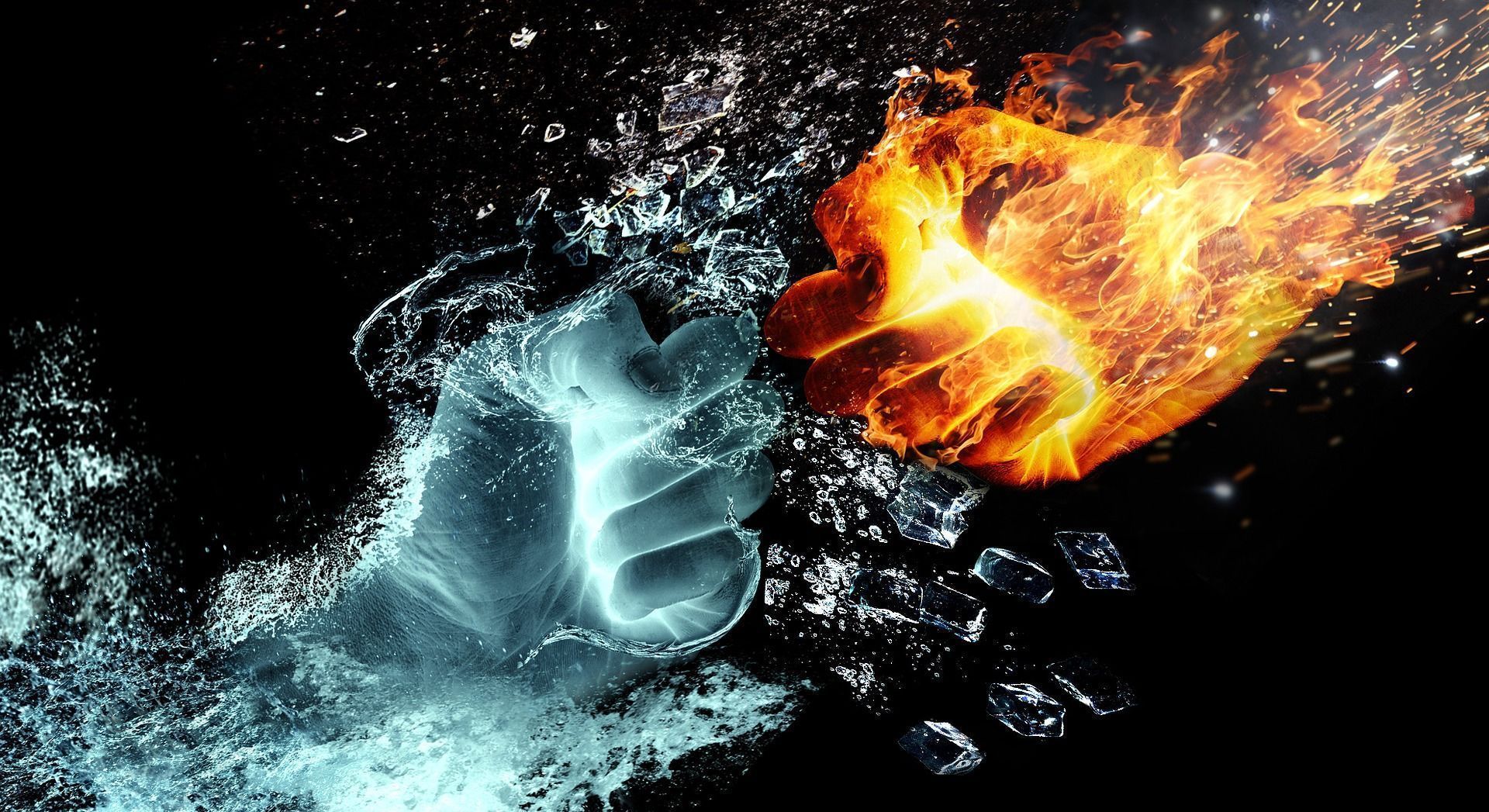
The View from the Opposition:
No one's ideas are beyond questioning. In this section, I argue the case for the opposition and raise some points you might wish to evaluate for yourself while reading this book.
#1: Greatness is Unbalanced
For pretty much everyone who reads this book, the ideas found within it will be perfectly applicable. It's universal, sage advice. And yet...
And yet there are a few people - not better or worse than anyone else, but certainly different - who will always be unbalanced when it comes to their commitments and their priorities. Not everyone will be able - or even want - to make commitments to vocation, family, religion/philosophy, and their community. And I think that's okay, just so long as not everyone does it.
There's definitely a "tragedy of the commons" situation here, where, maximizing your focus on say, excelling in your career to the exclusion of every other priority might be the perfect choice for you. But if everyone were to do it, it would be a disaster.
To be great at anything, you have to put in a ridiculous amount of time and effort in order to become great. What that inevitably means, however, is that you're going to have to make sacrifices. You can do almost anything you want in life, but you can't do everything.
"The test of a first-rate intelligence is the ability to hold two opposed ideas in the mind at the same time and still retain the ability to function.”
-F. Scott Fitzgerald

Questions to Stimulate Your Thinking:
#1: "What have you truly loved so far? What has ever uplifted your soul, what has dominated and delighted it at the same time?"
#2: Looking around at my current situation, what is my responsibility here? To whom do I have an obligation, and what could I be reasonably expected to owe them?"
#3: "When have I felt most needed?
#4: "What pains am I willing to tolerate in order to follow through on my commitments?"
#5: "What would you do if you weren't afraid?"
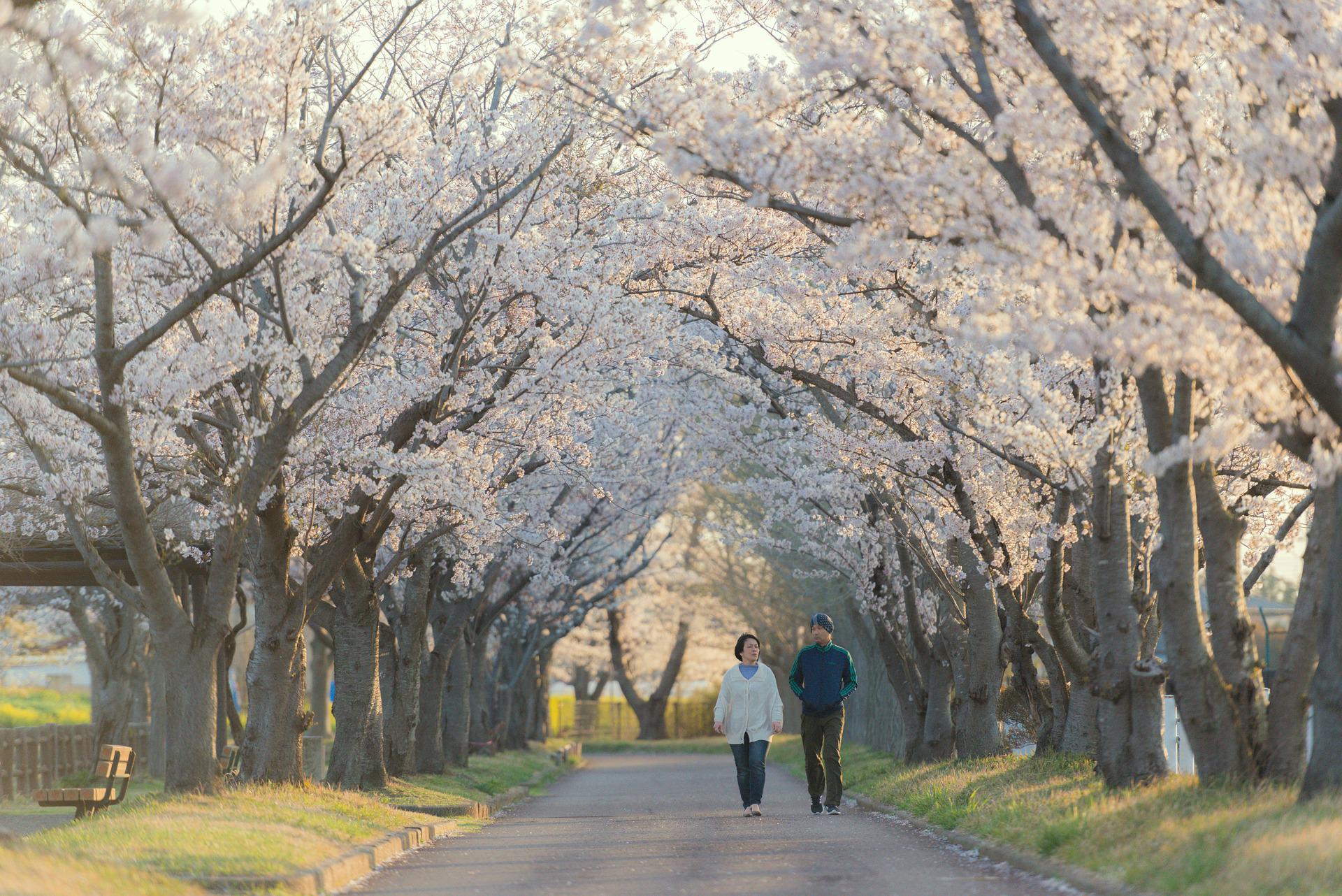
Action Steps:
So you've finished reading. What do you do now?
Reading for pleasure is great, and I wholeheartedly support it. However, I am intensely practical when I'm reading for a particular purpose. I want a result. I want to take what I've learned and apply it to my one and only life to make it better!
Because that's really what the Great Books all say. They all say: "You must change your life!" So here, below, are some suggestions for how you can apply the wisdom found in this breakdown to improve your actual life.
Please commit to taking massive action on this immediately! Acting on what you've learned here today will also help you solidify it in your long-term memory. So there's a double benefit! Let's begin...
#1: Travel at Least 30 Minutes Away from the Nearest Person
We need space and distance in order to think if we're ever going to push back against society's programming and figure out what it is that we actually believe. The modern world, however, rarely makes this easy.
We need to create that space for quiet reflection, and one of the best ways to do that is to physically move locations and move somewhere that will afford us the peace we need in order to think and plan.
So find a place where you won't be interrupted, and leave all your distractions behind. Leave your phone in the car, turn off everything, and just sit and think. Some of my best ideas were born of silence.
#2: Make It Hurt
Think back to the story of the man sitting on the nail, who said that it didn't hurt enough to move. In order to make any sort of chance, we have to be properly motivated, and that motivation usually comes as a result of either moving away from pain or towards pleasure.
That being the case, remind yourself of how empty and lifeless it is on the first mountain, and how desolate your soul when you've given yourself up entirely to "making it" out there in the world, at the expense of everything else that makes life worth living.
It's even better if you can project forward to the end of your life, and think back to the one chance you had here and now to live a committed, fully human life, complete with rich social networks and more friends than you can count. Now think about how painful it would be never to experience such a life, and pledge to start climbing the second mountain.
#3: Make One Small Decision and Follow It Through to the End
Making commitments is not easy, especially not after the initial enthusiasm fades. Many people run from making any sort of decision, but what they fail to realize is that choosing not to choose is still a choice.
So start exercising your decision muscle, and make at least one commitment that you'll stick to no matter what. It can be anything from promising to help your brother with his homework after school, or offering to serve on the council of your local food bank, but once you've committed to this decision, follow through on it no matter what.

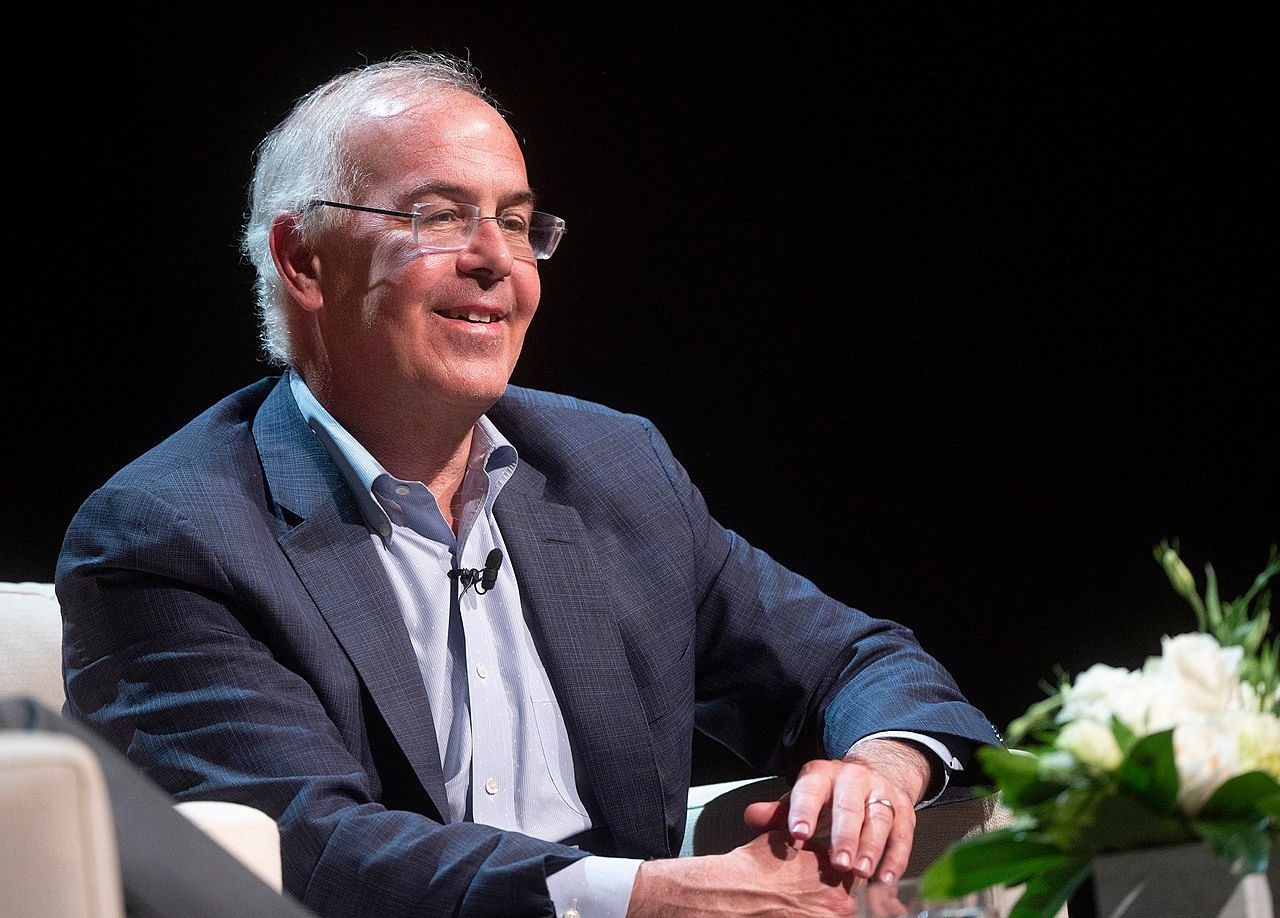
About the Author:
David Brooks became an Op-Ed columnist for The New York Times in September 2003. He is currently a commentator on “PBS NewsHour,” NPR’s “All Things Considered” and NBC’s “Meet the Press.”
He is the author of “Bobos in Paradise: The New Upper Class and How They Got There” and “On Paradise Drive: How We Live Now (And Always Have) in the Future Tense.” In March 2011 he came out with his third book, “The Social Animal: The Hidden Sources of Love, Character, and Achievement,” which was a No. 1 New York Times best seller. His most recent book is “The Second Mountain.”
Mr. Brooks also teaches at Yale University and is a member of the American Academy of Arts and Sciences
Additional Resources:
David Brooks - New York Times Bio and Archives
David Brooks Speaking About The Second Mountain
The Second Mountain - Mind Map Book Summary
This Book on Amazon:
The Second Mountain, by David Brooks
If You Liked This Book:
The Road to Character, by David Brooks
The Social Animal, by David Brooks
Personal Development for Smart People, by Steve Pavlina
The Good Neighbor: The Life and Work of Fred Rogers, by Maxwell King
Some Do Care, by Anne Colby and William Damon
An Imperfect Offering, by Dr. James Orbinski
Finite and Infinite Games, by James P. Carse
